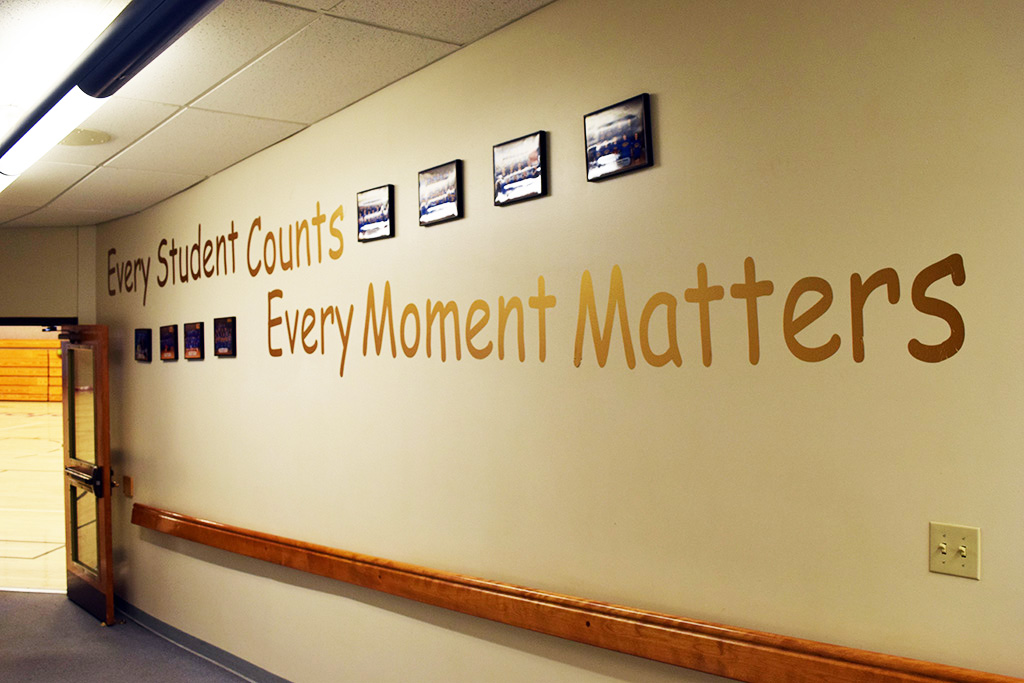Maine Schools in Focus: Addressing Adverse Childhood Experiences Through Community-Engaged School Leadership

Catharine Biddle, University of Maine
Ian Mette, University of Maine
Twenty-first century Maine communities face numerous challenges. Many towns have high rates of unemployment, particularly in remote rural regions of the state. Additionally, many young people leave in search of work and education, which contributes to statistics that show Maine has one of the oldest populations in the nation. As the economic well-being of communities declines, so can overall community well-being. Without a stable economic base, greater numbers of Maine children encounter adverse or challenging circumstances in their lives outside of school, including a lack of access to safe and affordable housing, food insecurity, and growing numbers of adults struggling with substance abuse.
Amidst these trends, schools find themselves juggling their attempts to address these barriers to learning while also focusing on accountability standards directed from state and federal agencies. Research on the effects of adverse childhood experiences, or ACEs, has provided many Maine educators with a shared vocabulary to discuss these issues in new ways, and allows educators to acknowledge that before high student achievement can be attained teachers must first be able to address the emotional concerns that many students bring with them every day (Babcock, 2014). Adverse childhood experiences are stressful events, including abuse, mental illness in a family, violence in the home, and physical or emotional neglect. Children with many ACEs often struggle in school environments with both learning and pro-social behavior. Without appropriate support, these students may have developmental challenges, including long-term social, emotional and physical impairment. However, research suggests that there are strategies that schools can use to mitigate the effects of adverse childhood experiences and to help young people cultivate resilience and socio-emotional skills (Durlak, Weissberg, Dimnicki, Taylor & Schellinger, 2011). These types of interventions often include referral to mental health supports, but also can include school and classroom-based strategies including support groups, behavior management alternatives and relaxation techniques that help create greater mindfulness for both students and teachers.
In rural areas, in particular, school and classroom-based supports may be particularly important as distance to mental health providers, coupled with lack of transportation, makes accessing mental health supports impossible for many children or their families. However, one organization is working to pioneer workable approaches to supports for students with ACEs in rural communities by bringing together collaborators from schools, social service providers, and local non-profit organizations to build a network of care and support. Based out of the Cobscook Community Learning Center in Trescott, Maine, this new initiative is called TREE: Transforming Rural Experience in Education. Over the past three years, this organization has been working to understand the complexities of social service delivery and support for young people within Washington County, and will soon start to partner with schools to better connect young people with adverse experiences with supports, both in and out of the classroom.
TREE’s work is informed by a focus on assets – what rural Washington County schools are already doing well – and how those assets can be leveraged by additional training and connections to outside resources to address what teachers and students perceive as the barriers to better supporting students with ACEs. TREE is built on three pillars, the first of which is increasing schools’ connections to community supports, both by collaborating social service organizations to provide food, clothing and after-school programming for schools, as well as bringing mental health practitioners into schools to take appointments with students. The second pillar is high quality instruction and leadership in schools that is both trauma and poverty informed. Accomplishing this includes providing training for school faculty and staff on classroom strategies and interventions to improve quality of instruction, creating greater shared-leadership opportunities among teacher leaders, and addressing community issues that permeate school walls. The third pillar of TREE is a focus on providing enhanced opportunities for young people to assume control over school decision-making by giving them greater voice in schools and engaging them in community-focused action-research projects.
At the heart of TREE’s work is not what is being done with rural Maine communities, but how it is being implemented and supported. TREE’s philosophy borrows heavily from Community Learning Exchange (CLE), a framework that has been used throughout the country to address community challenges through collective leadership and community-school partnerships. Taken together, TREE’s approach to creating equitable schools capitalizes on the close and interdependent well-being of Maine’s rural schools and communities as they attempt to address these issues. In doing so, schools and communities work to set school improvement efforts that are meaningful at the local level, while also valuing on the close relationships that many Maine teachers cultivate with their students and their families.
Several University of Maine COEHD faculty are partnering with TREE to support these efforts by serving on their advisory board. Additionally, in partnership with faculty members Lyn Brown and Mark Tappan at Colby College, we have been conducting interviews and focus groups across Washington County to understand where teachers, students and parents see the greatest need for resources to address childhood adversity. Together, our research team has supported TREE as it works to design a program that will help to address the challenges faced by children in Washington County.
Sources:
Babcock, E. (2014). Using brain science to design new pathways out of poverty. Boston: Crittenton Women’s Union.
Durlak, J. A., Weissberg, R. P., Dymnicki, A. B., Taylor, R. D. & Schellinger, K. B. (2011). The impact of enhancing students’ social and emotional learning: A meta-analysis of school-based universal interventions. Child Development, 82(1): 405–432.
Any opinions, conclusions, or recommendations expressed in the Maine Schools in Focus briefs are those of the authors and do not necessarily reflect institutional positions or views of the College of Education and Human Development or the University of Maine.
